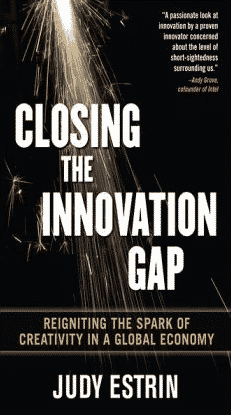Reframing Your Innovation Strategy in 2014

Innovation “strategy” is no longer king. In today’s business world, uncertainty is virtually inescapable. It goes without saying that without risk, there can be no innovation. However, today’s climate requires that business leaders and innovation champions reframe how they approach innovation.
Albert Einstein is quoted as saying, “If I had an hour to solve a problem and my life depended on the solution, I would spend the first 55 minutes determining the proper question to ask, for once I know the proper question, I could solve the problem in less than 5 minutes.”
 The key to successful and sustainable innovation is in the process. Not only in setting up your house before you begin, but also in the steps you take along the way. Here are 2 tips to ensure success for reframing your innovation strategy:
The key to successful and sustainable innovation is in the process. Not only in setting up your house before you begin, but also in the steps you take along the way. Here are 2 tips to ensure success for reframing your innovation strategy:
- Innovate with your customers
David Smith of Lockheed Martin has spoken a lot about inviting your customer to be a full participant in your innovation process. Deep meaningful customer knowledge leads to the new ideas and insights that fuel innovation. Add a step into the innovation process where your customer’s ideas and input help to drive new opportunities. Build innovation at the intersection of consumer and commercial insight.
- Engage leadership
Innovation should be a company-wide culture. Business units must own it, business leaders must love it, and HR managers must support it. Educate your CFO about investing in innovation, so that you can invest in the people and time needed to make innovation happen. You need to have executive level buy-in, and they must not only endorse, but proactively push for Innovation.
According to Judy Estrin, author of Closing the Innovation Gap: Reigniting the Spark of Creativity in a Global Economy, both organizations and employees need 5 core values for innovation to occur. They are as follows:
- Curiosity and a natural ability to question the status quo.
- Risk taking and a willingness to learn from failure.
- Openness – Cross-functional teams that believe in cooperation above competition.
- Patience and tenacity to give an idea a chance to grow.
- Trust, accompanying each value listed above
Category: Innovation
Tags:


I totally agree. I would add: brand-in as a relevant tool to enhance innovation spirit.
Regards
Mariano